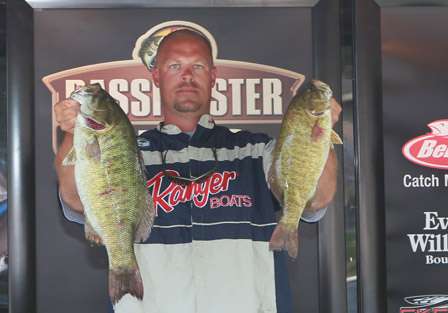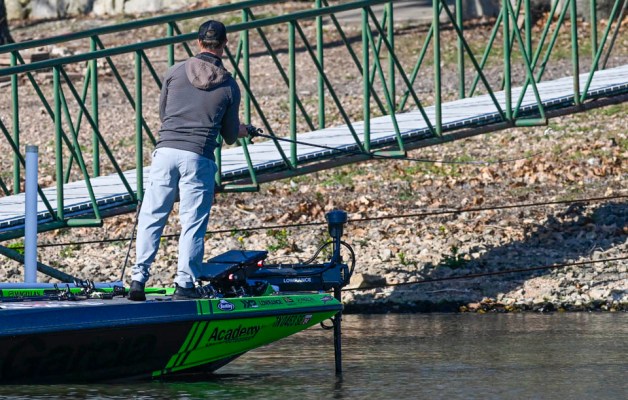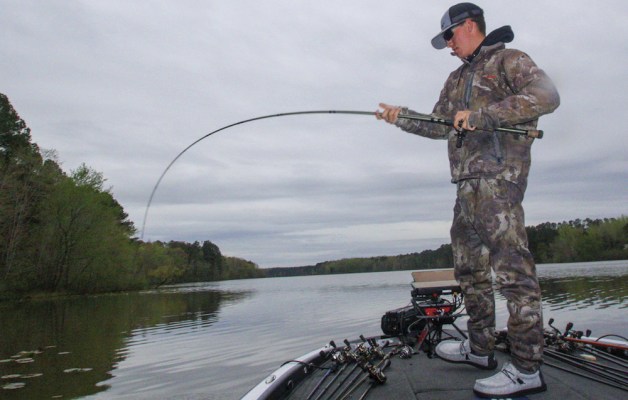
Most anglers, leaving the dock on the final day 10 pounds and an ounce shy of the leader, would try to upgrade their weight a bit and accept whatever finish they could salvage. Todd Schmitz decided to go for broke, and his efforts earned him first place and $46,286 at the Bass Pro Shops Bassmaster Northern Open on the Detroit River.
Here, in his own words, is how he did it:
Todd Schmitz
(1st Place — 61 pounds)
The weather has been really hot in Michigan for the past month or so. Water temperatures are high. The bass are moving around following the perch. Both are looking for cooler water. The areas near the shipping channel in Lake St. Clair stay 4-6 degrees below the rest of the lake because of the inflow from Lake Huron through the St. Clair River.
I fished sandy areas with scattered weeds in 12-14 feet of water anywhere between a 1/2 and 3/4 of a mile from the channel. It was a matter of moving from one spot to another until you found the bass. Several times my co-angler and I would go two hours or more without a bite, but when you got one you'd get a bunch of them. It was game on.
My quality smallies came on a Bomber Fat Free Shad Jr. (BD6F). When the sun was out, I used a perch-colored finish to match the forage. When the clouds moved in, I switched to citrus sparkle. It's a little brighter and gave them a different look.
I was using a 7-foot, medium-heavy action Powell glass cranking rod (703 CB Glass) and a Shimano Curado reel (5.1:1 gear ratio) spooled with 10-pound-test P-Line Fluorocarbon line.
The glass rod made a huge difference. Even though I was catching all my bass on a crankbait, I didn't lose one fish during the entire tournament. The flexibility and forgiving nature of that rod was indispensable.
I think my line was even more important. My co-anglers were using the same type of crankbaits except that they were throwing them on braid. They didn't get a bite. The water in St. Clair is fairly clear. The bass can see braid. I'm sure their line was the problem.
Another reason for my win was my understanding of bass movements in the lake. That allowed me to make the right choices and the courage to believe I could win.
St. Clair bass wander all over the place following the perch. If you can find the perch, you can find the bass. It's important to understand that perch don't hug the bottom; they suspend a few feet above it.
All my bites came when my bait was working through open water. If you let it dig into the bottom, you were wasting your time. The bass sense that's unnatural.
That's different from what you often hear about fishing crankbaits. Everybody wants to hit the bottom and bang off stuff. However, in St. Clair, the forage stays up in open water, so that's where your crankbait should run.




